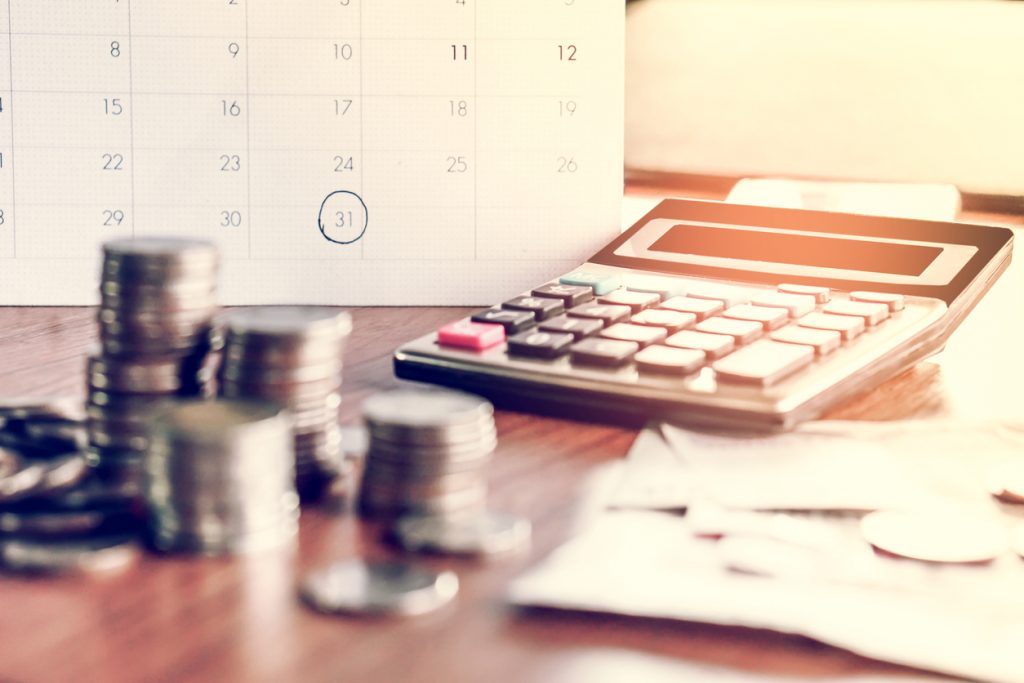There are various types of funding available to start your small business. We have found that Small Business Administration loans are a great way to finance your small business. What makes them the best choice of funding for your business, you might ask? Well, the federal government guarantees Small Business Administration (SBA) loans. When we say the federal government guarantees them, this means that the government guarantees loans that lenders offer. This incentivizes them to offer you lower interest rates and more flexible terms. SBA loans are a great way to take on a loan to give your small business the boost that it needs to take off. At the same time, you don’t have to worry about having to pay back a ridiculous amount of interest to pay off the loan. They are not conventional loans but are definitely a great option.
Since SBA loans are such an excellent option for small business owners, this also means that SBA loans are competitive among those seeking one out. While this is a disadvantage, do not let this stop you from applying. The more you research, prepare, and apply during crucial periods for an SBA loan, the more likely you are to receive the loan. If you do not qualify for an SBA loan, there is no need to worry! You can always re-apply or apply for other loans designed for small businesses.
Suggested Reading: A Beginner’s Guide to Consolidate Your Credit Card Debt
What Exactly is an SBA Loan?
As we mentioned, SBA loans are loans for small businesses that are guaranteed by the Small Business Administration, which is part of the federal government. Participating lenders then issue these business loans. The most considerable loan amount provided through SBA programs is $5 million. Loans provided by the SBA typically have better loan rates and terms than private firms, and this makes these loans a more manageable option for small business owners. The SBA can guarantee up to 85 percent of loans of $150,000 or less. This means that, for example, if a loan was $150,000 and the SBA guaranteed 85 percent of the loan, then the SBA would guarantee $127,500 of the loan. As for loans that are more than $150,000, the SBA can guarantee 75 percent of these loans. So, for example, the SBA would be able to secure $150,000 for a loan of $200,000.
The government does not administer SBA loans, but they guarantee them at the above percentages by the Small Business Administration. This is why they are seen as connected to the government and the Small Business Administration, but it is essential to remember that these loans are not government loans.
SBA Loan Interest Rates
SBA rules provide that lenders set their interest rates based on the prime rate (plus a markup). The markup rate is known as “the spread.” The following are different loan interest rates:
2019 SBA 7(a) Loan Interest Rates
$25,000 or less: If the loan is paid off in less than seven years, the interest rate is 9.5 percent. For loans paid off in over seven years, the interest rate is 10 percent.
Loans ranging from $25,001 to $50,000: If the small business loans are paid off in less than seven years, then the interest rate is 8.5 percent. The interest rate is 9 percent for loans paid off in over seven years.
For loans above $50,000: Loans paid off in less than seven years, are subject to an interest rate of 7.5 percent. For loans paid off in over seven years, the interest rate is 8 percent.
Pro Tip: Save Big! Refinance an Auto Loan
SBA Loans Repayment Terms
SBA loans provide an added incentive — you generally get additional time to repay them versus other types of loans. The term you have to repay the loan is based on how the small business plans to use the money. These include short-term loans and long-term loans. The SBA provides loan terms as follows:
- Working capital or daily operations: 7 years
- Purchasing new equipment: 10 years
- Real estate purchases: Up to 25 years
What Does “Guarantee” Mean for SBA Loans?
The government does not provide SBA loans, but instead, you receive the SBA guarantee. Well, you may wonder what exactly this guarantee entails? The guarantee means that if you end up defaulting on the loan, the government (through the SBA) will pay back the percentage of the loan that they guaranteed. This is the reason that loan terms are longer for lenders, interest percentages are lower, and monthly payments are smaller. It is primarily due to the government guaranteeing a large portion of the loan amounts for SBA loans.
Is There a Personal Guarantee Required?
Yes, the SBA requires a personal guarantee from every owner that owns a 20 percent stake in a business or has a top management position. This is something to take into consideration if you are a small business that is taking out an SBA loan. A personal guarantee means that you are putting your fixed assets on the line if your business is not able to make payments. This means if you are an owner who this would apply to, you want to think about this and your financial capabilities if you apply for an SBA loan.

Suggested Reading: Best FHA Lenders
Types of SBA Loans
SBA loans are available in several different types. The following are the different types of SBA loans:
- 7(a) loan program loan
- 504 loan program loan
- Microloan
- Disaster loan
7(a) Loan Program Loans
Loans available per the SBA 7(a) loan program are the primary type of loans small businesses receive from the SBA. These loans are term loans that the federal government guarantees for a value of up to $5 million. Additionally, these loans provide funding for business expenses like working capital, purchasing equipment, and expanding your business. As SBA loans are not processed through the government, loans from the 7(a) loan program are processed through specialized lenders, credit unions, and banks.
504 Loan Program Loans
Loans available through the 504 loan program come from a Certified Development Company (CDC). Certified Development Companies are non-profit corporations that are community-based partners for providing 504 loans. CDCs promote economic development within local communities that the SBA regulates; the CDC works with the SBA and participating lenders to provide small businesses with financing. The guarantee on these loans is up to $5 million. These loans provide funding for purchasing land, facilities, and machinery. As mentioned, these loans are processed through non-profits and private-sector lenders.
Similar Topics: Best Mortgage Lenders for First-Time Buyers
Microloan
Loans available per the Microloan program provide loans of up to $50,000 for small businesses and not-for-profit childcare centers. On average, these loans are around $13,000. These loans provide funding for inventory, working capital, equipment, and for start-ups beginning a business. Processed through specifically designated intermediary lenders, which are non-profit, community-based organizations, these loans dominate the small business loan market.
SBA Disaster Loan
The SBA disaster loans program provides loans of up to $2 million for small businesses, but these loans are specific funds for those affected by natural disasters and other emergencies. These loans are for the repair or replacement of damaged or destroyed property in a declared disaster or emergency. These include real estate, personal property, machinery and equipment, and inventory and business assets. These loans are provided directly from the Small Business Administration.

Read More: Compare Mortgage Rates: Get Smart Before You Buy
How do I Apply for an SBA Loan?
Are you a small business owner that wants to apply for an SBA loan? If so, you are probably wondering where to start. You will first want to go to the SBA website (https://sba.gov/funding-programs/loans). This website includes a loan application checklist, which is extremely useful in helping small business owners know what documents they will need for an application. Some of the different documents you will need to apply are:
- A statement of personal history.
- A personal financial statement
- Your credit score
- Three previous years of individual income tax returns.
- Three previous years of business tax returns.
- Any business certificates or licenses.
- Business Lease.
- Loan application history.
- An SBA borrower information form.
You will also want to check with your SBA District office. Contact your SBA district office to find the names of approved SBA lenders.
Pro Tip: Best Savings Accounts
SBA Lender Match Tool
Another tool at your disposal is the SBA Lender Match tool. This is a tool that you can use to match-up with potential lenders. It is important to note that lenders follow SBA guidelines. However, they use their own underwriting criteria when evaluating potential borrowers and deciding whom they want to lend funds.
If you need funding and need it fast, there is a financing program that the SBA provides called the “SBA Express.” Aptly named because it responds quickly to loan applications. By quickly, the SBA means within 36 hours. This is an excellent option if your business’s finances are in great shape, and you have an excellent credit history. These factors will decrease the period that you have to wait. As the evaluation for the express loans program is more rapid and less thorough, the maximum amount of funding that they lend through this program is $350,000. Additionally, the maximum amount that the SBA guarantees for loans provided through this program is only 50 percent.
Read More: The Top 5 Mortgage Mistakes to Avoid
Choosing the Best Lender for Funds
When applying for SBA loans, the goal is to find a bank that has a history of providing these types of loans. It is essential to ask these critical questions to the lender:
- How frequently do they provide SBA loans?
- Their experience with SBA loans?
- What is the typical amount they provide for an SBA loan?
The more experience the lender has with SBA loans, the more comfortable and more efficient the process will be for you. As you work with them, they will be more likely to give you an accurate idea of your small business’s approval chances for an SBA loan.
Related Topics: The Best Savings Account Rates
How Long is the Process to Get an SBA Loan?
The application process for an SBA loan can take as long as several months. The better your business finances and your personal credit history are, the higher your approval chances become. These factors can also make the loan process quicker and smoother. An ideal candidate has likely been in business for a minimum of two to three years. They also have demonstrative evidence that they are profitable and have cash flow that can support loan repayment. In the cases of ideal candidates, the process will only take weeks.
Suggested Reading: Best Auto Loans
Should Any Small Business Apply?
Not every small business should apply for an SBA loan. Any struggling small business should not apply, as approval rates are low.
Some businesses are also ineligible which business owners should be aware of. They include:
- Real estate investment firms, specifically when holding real property for investing purposes.
- Firms involved in any speculative activities. Specifically, those that develop profits from any price fluctuations rather than through the normal course of business trade. These include stock brokerage firms.
- Dealers of rare coins and stamps.
- Firms involved in lending activities. Specifically, businesses such as banks, finance companies, insurance companies (not agents), leasing companies, and other firms whose stock in business trade is money-based.
- Pyramid Schemes. Any pyramid sales plan where they base a participant’s primary incentive on sales made by continually increasing participants.
- Companies involved in activities that are against the law in the jurisdiction where the business is located. Examples of this are selling drug paraphernalia or operating a hotel or motel that permits illegal prostitution.
- Gambling activities. Any business where the principal activity of the company is gambling unless a business gets less than one-third of annual gross income from either selling state lottery tickets under a state license or legal gambling activities. Under either situation, a business is still eligible.
- Charitable, religious, or other non-profit religious institutions are ineligible.
If your business falls into any of the above categories or is currently struggling, then you should not apply for an SBA loan. The process of applying for an SBA loan takes a lot of time and focus, and these attributes would probably better serve you if it is used toward running your business.
Additional Reading: Top Restaurant Loyalty Programs For Minimal Spenders.
Remember: Research to Find the Best Loan
The most important thing that a business owner can do to ensure an SBA loan is right for them is to do research! This article is a great tool to begin this process. The next step is to visit the SBA website and then get in contact with lenders to ensure that you are the right candidate for whatever SBA loan they are providing. The lenders that offer SBA loans are not one-size-fits-all. Just because they participate in the program does not mean they are the best fit for your small business. Business owners need to make sure to do their due diligence by finding a preferred lender to provide them an SBA loan.
Suggested Reading: Inside the Pros & Cons of 5/1 ARM Rates

